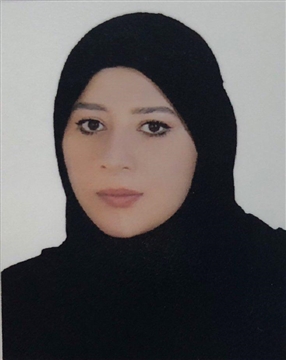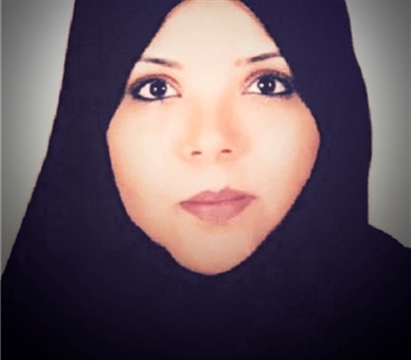| Time |
Agenda |
|
09:00
–
13:00
|
The Innovation platform provides space for the youth to showcase their innovative projects through manual workshops and live demonstrations.
|
|
09:00
–
15:00
|
Sharjah of Tomorrow…How Do You See It? Sharjah Events website, an initiative by Sharjah Government Media Bureau, will introduce an interactive map titled "Sharjah of Tomorrow…How Do You See It?" The map will serve as a link between the public and Sharjah’s various entities and institutions, informing the latter of any development proposals by the former aimed at enhancing Sharjah's position on the world map. In complementation of this initiative, Sharjah Events is launching a competition to encourage members of the community to come up with new ideas and innovations that would help improve the future of Sharjah through the use of modern technology to create creative electronic games
|
|
09:00
–
15:00
|
"Sheikh Sultan Award for Celebrating the Spirit of Youth" is the first of its kind award in the region, launched by His Highness Sheikh Dr. Sultan bin Muhammad Al Qasimi, Supreme Council Member and Ruler of Sharjah launched, with an aim to sharpen talents, hone daily skills and enhance the will of young people in the UAE by challenging various and multidisciplinary levels, including volunteering, adventure, skill and talent.
The award is open for youth, male and female, aged between 13 and 18 and from all nationalities residing in the UAE in its first edition, with the opportunity for accepting participants from around the world in the future.
The award focuses on the integration of academic knowledge, talent, will and skills through mental, physical and moral learning, with the aim of building a generation empowered with potentials that qualify them to meet the various requirements of life and serve society in the social, cultural and physical aspects by activating the efficient human principle in society.
|
|
09:00
–
15:00
|
The exhibition takes visitors on a semi-centennial journey that starts with the Emirate of Abu Dhabi’s participation in the Osaka World Expo in 1970. The highlight of the UAE’s participation in 1970 was the speech of President His Highness Sheikh Khalifa bin Zayed Al Nahyan, as the then Crown Prince of Abu Dhabi, prior to the formation of the UAE. The journey also includes the milestone moment when, in 2013, Dubai won the right to host Expo 2020, and concludes with the UAE’s participation at the most recent World Expo in Milan in 2015.
The exhibition reflects the vision and determination of the founding father Sheikh Zayed bin Sultan Al Nahyan to highlight the name of the UAE on the map of the world's leading destinations 50 years ago, while featuring the UAE's keenness to build bridges of understanding and cultural cooperation at the international level.
|
|
09:00
–
12:00
|
On the sidelines of IGCF, the Sharjah Youth Council is holding its 2nd Sharjah Youth Forum under the theme "Future Sharjah". The Forum aspires to dialogue with the youth on their creative ideas and future vision of Sharjah, under five main topics: education, health, employment, urban planning, and government services.
Sharjah Youth Forum seeks to build an effective communication bridge with the government by creating a new interactive platform that brings together Sharjah’s youth and decision-makers, with the aim of engaging youth and activating their role in various fields.
|
|
10:00
–
10:30
|
The session will discuss the significance of analysis of media information and its impact on human behaviour, as well as the role of technology in the analysis process, whether for traditional or new media.
Key Pillars:
- Use of modern technology to follow public psychological trends
- Media Psychology
- Influence of the social media audience
|
|
|
Speaker
|
|
10:00
–
11:30
|
In this interactive session, the trainer will be discussing the profound transformation that the digital channel continues to go through and how this is impacting communication, marketing and service delivery efforts by government organisations. The facilitator will be going over the latest relevant digital trends, along with the opportunities and threats they pose to both individuals and organisations. This presentation will help audience see the value of taking more of a strategic, forward-thinking approach towards the way they communicate and deliver services online.
Key topics:
- The latest global digital behaviour statistics
- The top current and evolving trends impacting government communication practices
- Stories and examples of effective initiatives
- Embracing free public data and using it to generate actionable communication insights
- The power of micro-influencers and niche communities in an overcrowded online world
- Tips for communicating effectively in a cluttered digital landscape full of disinformation
|
|
|
Trainer
-
Mike Kujawski
 Managing Partner, Centre of Excellence for Public Sector Marketing, Canada
Managing Partner, Centre of Excellence for Public Sector Marketing, Canada
|
|
11:30
–
12:30
|
In this session, participants will discuss the role of children's channels in shaping young generations. They will also address the impact of these channels on children personalities, whether positive or negative, specially that they are considered an important source that shapes cultures, values and behaviours.
Key pillars:
- Responsibilities and challenges of children’s media
- Children's channels between education and entertainment
- How media shapes a child’s personality
|
|
|
Speakers
|
|
|
Moderator
|
|
10:00
–
15:30
|
|
|
10:00
–
10:30
|
|
|
|
Speaker
|
|
10:50
–
11:10
|
Notable examples of spreading Tolerance, Dialogue, and Peaceful coexistence
|
|
|
Participants
|
|
11:10
–
11:30
|
Zayed in the eyes of history
|
|
|
Participants
-
Noor Beshta
 Student at City University College of Ajman
Student at City University College of Ajman
-
Muna Salem
 Student at City University College of Ajman
Student at City University College of Ajman
|
|
11:30
–
12:00
|
Cooperation between Government Corporations & Universities to Develop Curricula
|
|
|
Speaker
|
|
12:00
–
12:20
|
Usage of governmental digital platforms to promote positive behavioral values "Sharjah Education Council: Case Study"
|
|
|
Speaker
|
|
12:20
–
12:40
|
The Role of Governmental Communication in achieving Audience Interaction: A case Study on Governmental Institutions
|
|
|
Speaker
|
|
12:40
–
13:00
|
Values of tolerance in UAE official social media governments’ accounts “ instagram “ as a model
|
|
|
Speaker
|
|
13:00
–
13:15
|
My Creative Child
|
|
|
Speaker
|
|
13:15
–
13:30
|
Ammarnaha
|
|
13:15
–
13:30
|
Speaker
|
|
13:30
–
13:45
|
Communication Strategies used in managing the organization's reputation: Dubai Police case study
|
|
|
Speaker
|
|
13:45
–
14:00
|
The role of social marketing in rationalization of consumption awareness : A Study on Sharjah Electricity and Water Authority
The role of social marketing in rationalization of consumption awareness : A Study on Sharjah Electricity and Water Authority
|
|
|
Speaker
|
|
14:00
–
14:15
|
Best Practices in Government Communication- Sharjah Book Authority
|
|
|
Speaker
|
|
14:30
–
14:45
|
Best Practices in Social Responsibility- Friends of Cancer Patients
|
|
|
Speaker
|
|
14:15
–
14:30
|
Best Government Website - Directorate of Town Planning and Survey
|
|
|
Speaker
|
|
14:45
–
15:00
|
Best Youth Initiative in Government Communication- Ahmed Khalfan AlKindi and Faisal Mohammed Alnaqbi
|
|
|
Speaker
|
|
15:00
–
15:30
|
A presentation about GCA “Best Youth Initiative in Government Communication” Category
|
|
15:00
–
15:33
|
|
|
|
Speaker
|
|
|
Based on IGCF’s theme “Behavioural Change Towards Human Development”, this sideline session will present a number of creative ideas, skills, perspectives and experiences to the attending audience.
Key participants of this session will include five youths, five parents, five young adults and five persons with disabilities, as well as five communication experts and employees from various entities across the UAE.
These groups will work together to discuss five behavioural challenges that represent a priority in triggering the role of individuals in a country’s development process, as well as come up with five practical and implementable solutions to overcome these challenges.
Session Methodology:
- A brainstorming session on the behavioural challenges that prevent individuals of various ages and professional backgrounds from contributing towards the development of their country in an active and positive manner.
- (Examples of such behavioural challenges include inaction and negativity, addiction to electronic games, resorting to time-consuming social activities, selfishness and self-centredness, lack of positive impact by media channels, lack of proper and motivational government messages, and others). This will be followed by identifying five challenges to be considered as priority discussion points during the day.
- Five solutions per behavioural challenge will also be brainstormed. This will be followed by a vote to select the best and most impactful solution.
- The group will also discuss the implementation aspects for each selected solution as follows:
- Important and effective communication channels for implementing the solution and for changing behaviours
- The type of messaging that appeals to children, youth and university students and encourages them to consider changing any given behaviour
- Suggested slogans
- Innovative methods of communication that can be used to encourage community participation and responsiveness
- The required changes and capacity building skills needed for government communication teams to be able to implement the proposed solutions
- A report summarising the challenges and proposed solutions to be prepared and shared with the media and audience.
|
|
|
Moderators
|
|
11:00
–
14:00
|
The Launch of an Electronic Game about Behaviour Change-In collaboration with Sharjah Department of eGovernment and Sharjah Children
“Sharjah 2071” Game:
An interactive edu-entertainment platform designed to take children on an exciting journey utilizing the latest in gamification technology. The child constructs a virtual character that is animated through the child’s own body movement. Travelling through multiple challenges, the character’s performance and scenarios are impacted by the child’s ability to choose positive values and constructive behaviors. Choosing healthy food options, recycling correctly, and opting to learn the skills needed to survive carefully constructed science-based future scenarios translate into higher scores. At the end, a completion certificate is issued, while the virtual character is saved so that the adventure can be resumed through the app later. The game will be launched at the 8th International Government Communication Forum (IGCF 2019) in collaboration with the Sharjah Department of e-government.
|
|
12:00
–
15:00
|
This is an integrated knowledge, training and educational space, involving three stages necessary for successful training. It hosts three "trainers" specialised in development and success.
The trainee goes through three different stages of comprehensive development, each featuring motivational workshops on human development. The journey of development begins with the trainee’s registration of his/her information through a smart screen, which then enables him/her to register for the workshops. The trainee moves from the first workshop to the second to the third within a specific period of time. Each workshop, lasting from 45 to 60 minutes, is of a different nature and moderated by a different trainer, allowing the trainee to learn something new in each workshop. At the end of his/her development journey, the trainee receives three certificates from three different trainers, in a matter of three hours only.
|
|
13:30
–
14:30
|
In raising their children, families focus on traditional and inherited values, such as honesty, integrity, cooperation and love of giving. However, thanks to the evolution of the social structure, changing lifestyles and increasing challenges on more than one level, these values no longer suffice. There is a need today to integrate several modern values into family education, such as preserving the environment and natural resources, controlling consumption, adhering to public order, innovation and creativity at work, changing the perception of education and the role of an individual in creating positive change in the environment.
This session highlights the important role of government communication in introducing parents/guardians and academic institutions to practices, ethics and behaviours that need to be instilled in children, adolescents and youth. The session also addresses the importance of launching government communication awareness campaigns about practices required for the current stage and in proposing effective platforms for coordination between families and academic institutions.
Therefore, the International Government Communication Forum brings together parents, children, academics and specialists in social behaviour to shed light on how to improve individual behaviour to meet the needs of modern society.
Key pillars:
- Developing the concept of family education: Societies’ needs have evolved, and so have the concepts of development. In light of these variables, what are the new behaviours and values that families need to instil in the consciousness of their children? How can families be educated about these behaviours?
- Towards an academic social platform: How can we achieve consistency between behavioural development campaigns and family education values? How can a clash between an educational institution and the family, in particular, be avoided? What ways can we foster coordination between the family and academic institutions? How can government communication advance its speech and tools in order to affect positive impact in society’s consciousness?
- Facilitating families’ access to social behaviour sciencesIn light of the openness to different cultures and identities, where social media convey ideas, information and cultures from across the world to children, adolescents and youth, dealing with individual behaviour has become more complicated. This requires the assistance of specialists and experts in achieving a deeper understanding of individuals’ psyche and directing them towards good practices and behaviours. How can families gain access to the opinions of experts and behavioural scientists? What is the role of academic institutions in educating parents on the basics of positive influence in their Children’ behaviours? What is the role of media institutions in this regard? How can government communication contribute to all of the above?
|
|
|
Moderator
|
|
12:30
–
13:30
|
Expo 2020 Dubai is hosting this interactive session on its Volunteers Programme and Expo Live. Both flagship initiatives are at the core of Expo 2020’s success and delivery plan.
Expo 2020 is looking to recruit 30,000 volunteers from all over the UAE to help deliver a successful event – many of which are young people. They will be an integral part of Expo 2020’s operations and one of the keys to its success. The Expo Volunteers programme is open to all UAE citizens and residents, including university students, graduates, homemakers, employees, retirees, and people of determination. This initiative gives people of all ages the opportunity to give back to the community.
Expo Live is an innovation and partnership programme launched by Expo 2020 Dubai. Expo Live funds, accelerates and promotes creative solutions that improve lives while preserving our world. With an allocation of USD 100 million, Expo Live will harness the convening power of a World Expo to demonstrate how innovations coming from all places and people can advance the pace of progress and inspire a more inclusive and prosperous future. The Expo Live University Innovation Programme incentivises creative thinking, problem-solving and collaboration between university students to solve problems worth solving. It awards grants so that innovative and ingenious concepts, relevant to the UAE and the region, can be accelerated to validation and prototyping.
|
|
|
Presented by
|
|
13:00
–
14:00
|
The session will showcase the role of social experiments in media and the use of these experiments as tools which contribute to enhancing and instilling values in humans.
Key pillars:
- Role of social experiments in instilling positive values
- Visual content and behaviour formation
- Human influence and making a difference
|
|
|
Speakers
|
|
|
Moderator
|
|
14:10
–
15:00
|
The session, held in collaboration with Harvard Business Review Arabic, discusses the mechanisms for achieving effective corporate communication using behavioural psychology.
Key pillars:
- Behavioural psychology and its impact on corporate communication
- Modern technologies and effective practices to optimise positive communication within corporations
- Positive impact on the public
|
|
|
Speakers
|
|
|
Moderator
|
|
14:00
–
15:00
|
In light of the central issues of the 8th International Government Communication Forum (IGCF), themed "Behavioural Change Towards Human Development", and in partnership with the Arab Government Communication Network, Sharjah Government Communication Network and UAE’s Government Communication Experts Network, SGMB organises this session on the sidelines of IGCF for the exchange of ideas, expertise and creative thinking to develop innovative proposals and solutions to the challenges discussed by this year’s IGCF.
Key Pillars:
- Incorporating behavioural change departments into the organisational structures of government communication teams in the Arab world: required changes, expected challenges and proactive solutions
- Addressing priority government communication issues in terms of human development: discussing ideas for communication campaigns and initiatives at the Arab region level to address the challenges of future education, job disappearance, change in future labour market structure and nature of jobs, and focus on mental and positive health as a developmental necessity, among others.
The forum's output:
- A summary of the challenges and solutions and a brief report in the form of recommendations and proposals for IGCF
|
|
|
Facilitated By
|
|
17:00
–
18:00
|
Her Highness Sheikha Jawaher bint Mohammed Al Qasimi, Chairperson of Rubu’ Qarn Foundation for Creating Leaders and Innovators, will be convening young representatives of Sharjah’s children and youth organisations and select UAE officials for a special session at the International Government Communication Forum 2019, to explore ways to intensify the youth’s role in participatory development.
The session will shed light on the centrality of the UAE’s youth in the nation’s cultural, societal and developmental journey, and seek to learn from the young participants their aspirations and interests.
|
|
|
Guest of Honour
|
|
|
Moderator
|
|
20:00
–
22:30
|
|